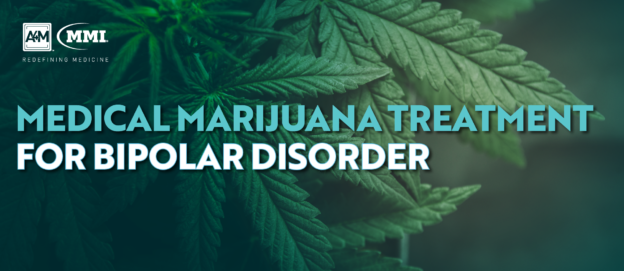As state legislatures continue to legalize medicinal marijuana, both healthcare practitioners and patients alike are beginning to embrace cannabis as a potential treatment for an array of chronic diseases and disorders. Cannabis is rapidly becoming an accepted and even preferred form of treatment, most commonly used for chronic pain management. Patients whose symptoms require highly sedative medications such as opiates are progressively reaching for clinical cannabis in hopes of evading unwanted side effects and returning to normal functioning.
Not only has marijuana proven efficacious in pain control, but it is also helpful in the treatment of nausea, weight loss and post-traumatic stress disorder. While it has yet to be extensively examined within the mental health field, burgeoning research suggests that marijuana can improve symptoms of a spectrum of anxiety disorders including generalized anxiety disorder and major depressive disorder. In one recent study, scientists at McMaster University in Canada found that out of 2,032 patients with anxiety disorders, 49% reported replacing standard prescribed medication with cannabis as their symptoms improved.
Medical Cannabis & Bipolar Disorder
However, not all mental health conditions can be easily treated with cannabis. Due to their unpredictable nature, bipolar spectrum disorders pose a challenge with medicinal marijuana treatment. Patients with bipolar disorder tend to suffer extreme changes in mood, including depressive and manic episodes which can be both erratic and destructive especially in combination with drug use. While the standard treatment for bipolar disorders of prescription medication and therapy has proven effective – many patients reach for cannabis to further alleviate their symptoms. In fact, marijuana use is markedly more prevalent among individuals with bipolar spectrum disorders compared to the general population and those suffering from other mental illnesses.
Research from Harvard Medical School has found substantial mood improvement in BD patients associated with cannabis use. While bipolar disorder and marijuana use and/or use disorder are individually associated with cognitive impairment, the study showed no additive negative impact on cognition related to BD. Although cannabis may result in partial alleviation of symptoms, there is conflicting evidence as to whether marijuana actually alleviates or exacerbates mood changes in patients with bipolar disorder.
Potential Side Effects
The negative side effects of cannabis use may outweigh its potential therapeutic benefits, especially in bipolar spectrum disorder cases. In addition to an increased risk of psychotic disorders, frequent cannabis use may result in earlier onset of primary manic episodes, increased manic and depressive episodes, rapid cycling, decreased long-term remission and diminished treatment compliance. In certain cases, marijuana use can complicate the management of BD by causing increased mood instability and even psychosis. Observational studies have revealed a correlation between manic relapse and cannabis use, with an increased risk for relapse in bipolar I disorder patients. More frequent hypomanic episodes, mixed states, and mood instability have been reported in individuals with bipolar II disorder. Although patients self-reported improved mood and decreased anxiety with cannabis use, the detrimental repercussions of the drug may discredit medical marijuana treatment for bipolar spectrum disorders. <>
While the use and acceptance of marijuana in the medical industry continues to evolve, further research is needed to clarify the relationship between the drug and worsened symptoms of bipolar disorders. While few studies have revealed mood improvements or improved cognition with use, a substantial body of evidence currently points to regressed outcomes for patients with BD. Caution should be advised until further studies certify whether the associated risks outweigh the potential benefits of marijuana use in patients with serious mental health disorders.

